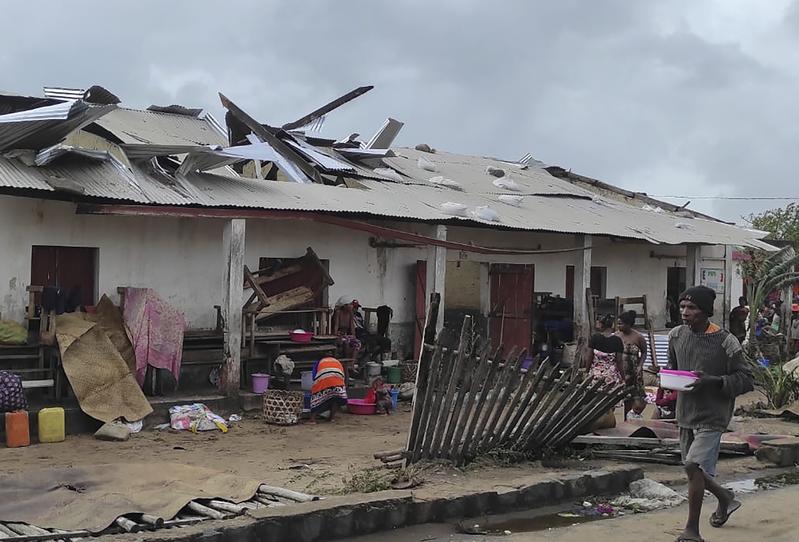 A man walks by damaged building, in Mananjary district, Madagascar, Feb 22, 2023 after cyclone Freddy reached Madagascar. (PHOTO / AP)
A man walks by damaged building, in Mananjary district, Madagascar, Feb 22, 2023 after cyclone Freddy reached Madagascar. (PHOTO / AP)
BLANTYRE, Malawi - Mozambique and Malawi were on Monday counting the cost of Tropical Storm Freddy, which ripped through southern Africa for the second time in a month over the weekend, leaving a trail of destruction and killing at least 17 people.
Freddy is one of the strongest storms ever recorded in the southern hemisphere and could be the longest-lasting tropical cyclone, according to the World Meteorological Organization.
Mozambique has seen more than a year's worth of rainfall in the past four weeks, prompting concern that rivers could burst their banks and cause widescale flooding
It pummeled central Mozambique on Saturday, ripping roofs off buildings and bringing widespread flooding around the port of Quelimane, before moving inland towards Malawi with torrential rains that caused landslides.
The full extent of the damage and loss of life in Mozambique in particular is not yet clear, as the power supply and phone signals were cut off in some parts of the affected area.
In Malawi's second-largest city Blantyre, at least 11 people were killed and 16 are missing, police spokesman Peter Kalaya told Reuters, adding that those numbers were likely to rise as so far casualties were only in for Blantyre and the storm had affected 10 districts.
READ MORE: Record-strength cyclone Freddy pounds Mozambique
He said rescue teams were looking for people in Chilobwe and Ndirande, two of the worst-affected townships in Blantyre, where it was still raining on Monday and many residents were without power.
"Some missing people are feared buried in rubble," Kalaya said.
At least six people died in Mozambique port Quelimane, which was right in the eye of the storm, authorities announced on the public broadcaster on Monday.
The total number killed by storm Freddy in Mozambique, Malawi and Madagascar since it first made landfall last month is now at least 44.
Guy Taylor, chief of advocacy, communications and partnerships for United Nations children's agency UNICEF in Mozambique, told Reuters from Quelimane that humanitarian agencies in Mozambique did not currently have the capacity to deal with a disaster of this size.
"We saw a lot of destroyed buildings and clinics. People's homes had their roofs torn off by the wind. Even before the cyclone hit we saw localized flooding," he said.
ALSO READ: Record-breaking storm Freddy due to hit Mozambique again
He said the wind had died down on Monday but there was still a lot of flooding that had destroyed crops and created a risk of waterborne diseases.
Mozambique has seen more than a year's worth of rainfall in the past four weeks, prompting concern that rivers could burst their banks and cause widescale flooding.
Malawi has been battling the deadliest cholera outbreak in its history, and UN agencies have warned the situation could worsen because of Freddy's heavy rains.
Scientists say climate change is making tropical storms stronger, as oceans absorb heat from greenhouse gas emissions and when warm seawater evaporates heat energy is transferred to the atmosphere.


